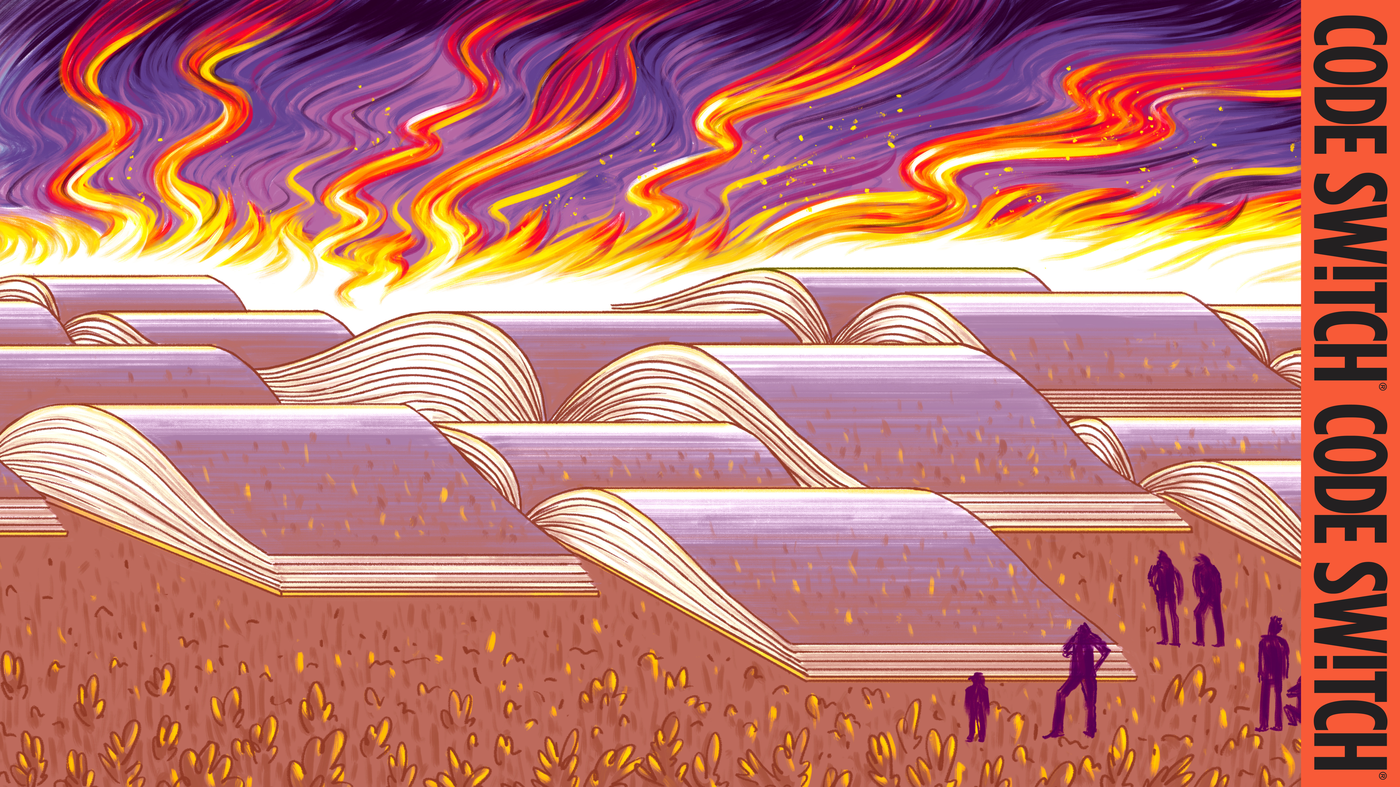
It seems like every few weeks, we hear mutterings of a new book ban in the United States. Whether it’s Iowa’s school districts trying to remove more than 3,000 books from its schools, or the governor of Utah signing a bill making it easier to ban books like Toni Morrison’s The Bluest Eye, it can feel like a never ending game of whack-a-mole between the censors and the censored. But what, and who, is driving these bans? What are people going after exactly?
Code Switch is starting a new monthly series where we deep dive into the many facets of the book bans. We’ll be getting into the ongoing battles, the statewide implications, and the kids who are fighting back. This week, we begin our series with Mike Curato, the author of Flamer, one of the most banned books in the country.
Curato tells us that he wrote Flamer as a way to help young queer kids, like he once was, better understand and accept themselves. It was met with immediate praise and accolades — until it wasn’t. When the book got caught up in a Texas-based book ban, suddenly the narrative changed. And like so many books that address queer identity, Flamer quickly became a flashpoint in a long, messy culture war that tried to distort the nature of the book.
We’ll also hear from NPR reporter Elizabeth Blair, who has been covering book bans around the United States.

Felecia Phillips Ollie DD (h.c.) is the inspiring leader and founder of The Equality Network LLC (TEN). With a background in coaching, travel, and a career in news, Felecia brings a unique perspective to promoting diversity and inclusion. Holding a Bachelor’s Degree in English/Communications, she is passionate about creating a more inclusive future. From graduating from Mississippi Valley State University to leading initiatives like the Washington State Department of Ecology’s Equal Employment Opportunity Program, Felecia is dedicated to making a positive impact. Join her journey on our blog as she shares insights and leads the charge for equity through The Equality Network.




